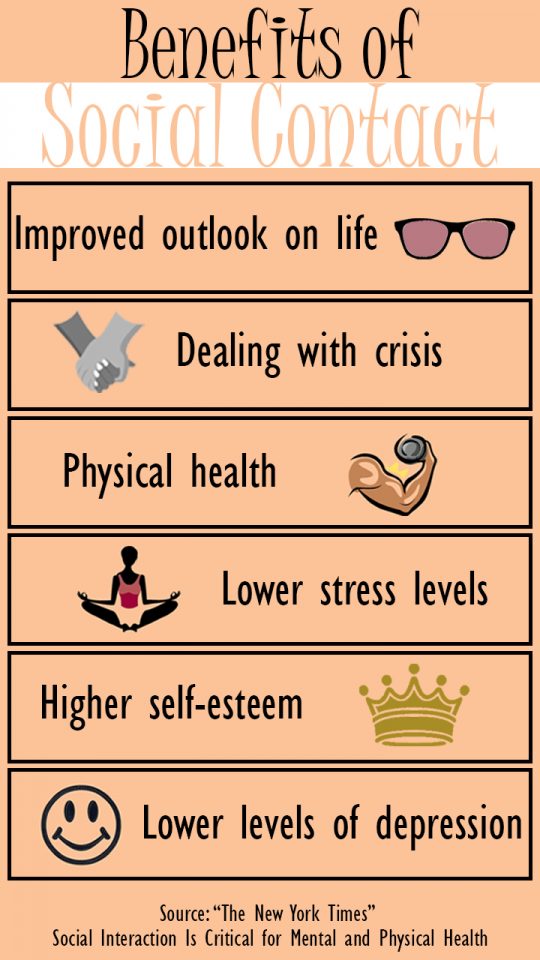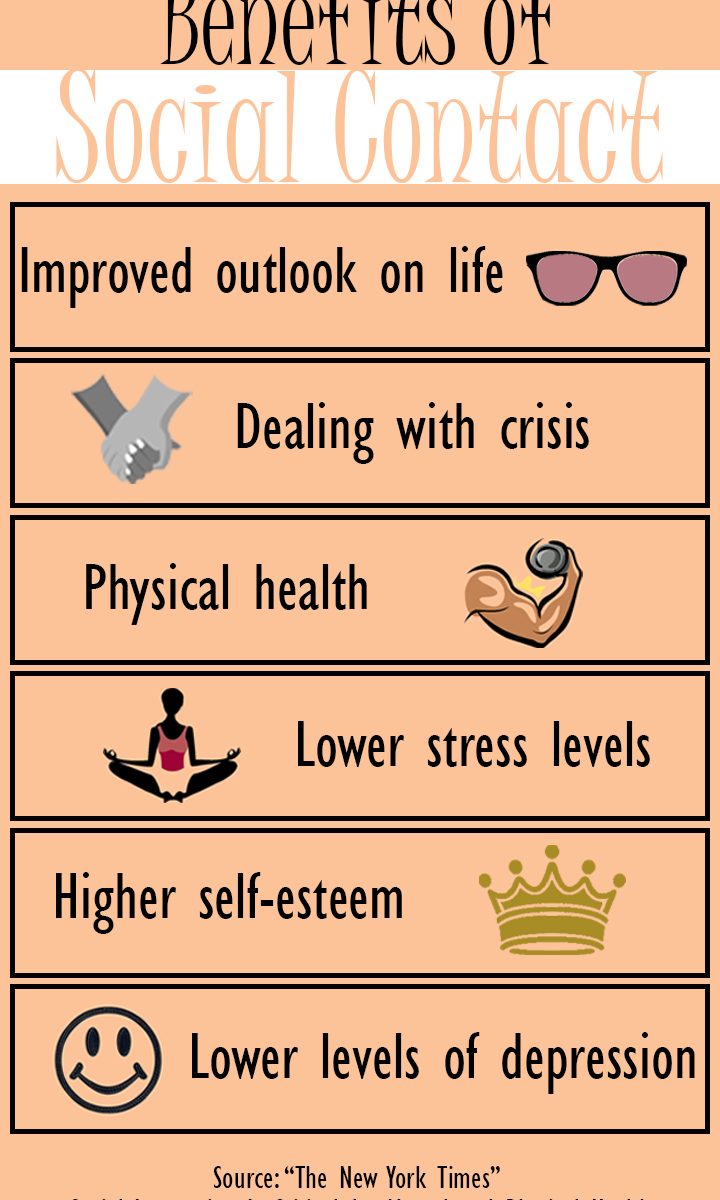
Our world has changed dramatically in a short amount of time. For most of us, our daily commute is the time it takes to get from our bedroom to the living room. Errands are something we look forward to because it means we get to see people outside of our homes. A walk outside is no longer just for leisure or exercise; it’s to maintain sanity.
Distancing is especially difficult when we need the comfort and support of each other so badly. While physical isolation is important for curbing the pandemic, we can, and should, maintain safe contact with others.
In fact, complete social isolation would be bad for our health. Humans are programmed for connection and need it just like we need food and water. Our brains have an attachment system that attracts us to other people, starting from our first moments in the world. Study after study shows that skin-to-skin contact between mother and child right after birth has many benefits for the baby, including better brain development and decreased crying time.
The reliance on relationships doesn’t stop in infancy. From mom and dad, we branch out to siblings, grandparents, aunts and uncles, cousins, teachers, friends, co-workers and so on.
Even as adults, we thrive when we have positive social contact. Knowing we are valued and appreciated by others improves our outlook on life, and staying in touch with others helps us in times of stress and crisis.
A pandemic definitely falls into the criteria for “stress” and “crisis.”
Plus, evidence suggests that human contact supports our physical health, which is crucial in the face of immuno warfare. This report from the University of Texas at Austin found links between low quality or quantity in relationships with conditions like heart disease, autoimmune disorders and high blood pressure.
If relationships weren’t important to us, why would we express social pain with the same words we use for physical pain? Hearts break, feelings get hurt, words cut like a knife. Sure, these could just be a metaphor, but research shows that social pain ignites the same parts of the brain responsible for registering physical pain.
To combat the negative effects of separation from the important people in our lives, we should recognize the difference between physically distancing and socially distancing ourselves from others.
We are lucky enough to live in an age of technology that makes it possible to connect. Text, call, FaceTime, Zoom-all these things allow us to keep our sanity. By staying in touch with each other, we can offer support in this difficult time and maintain the relationships that make us human.
Kayla Mayer can be reached at maye8518@stthomas.edu.

